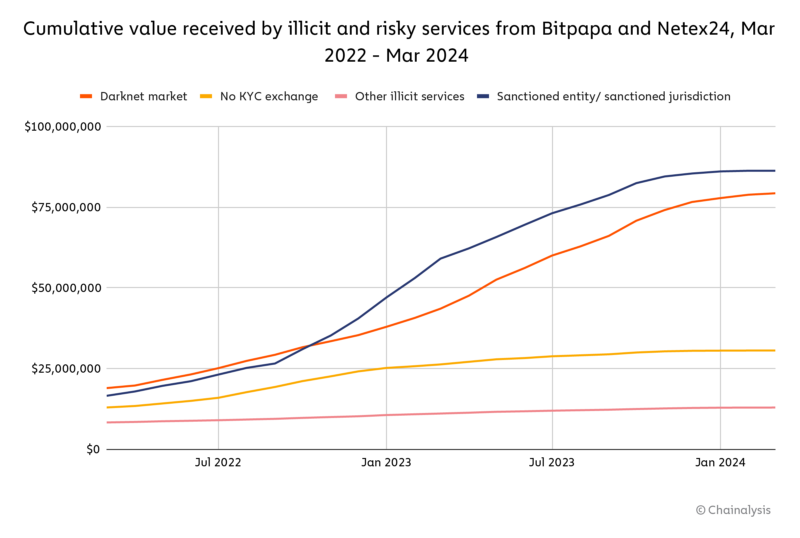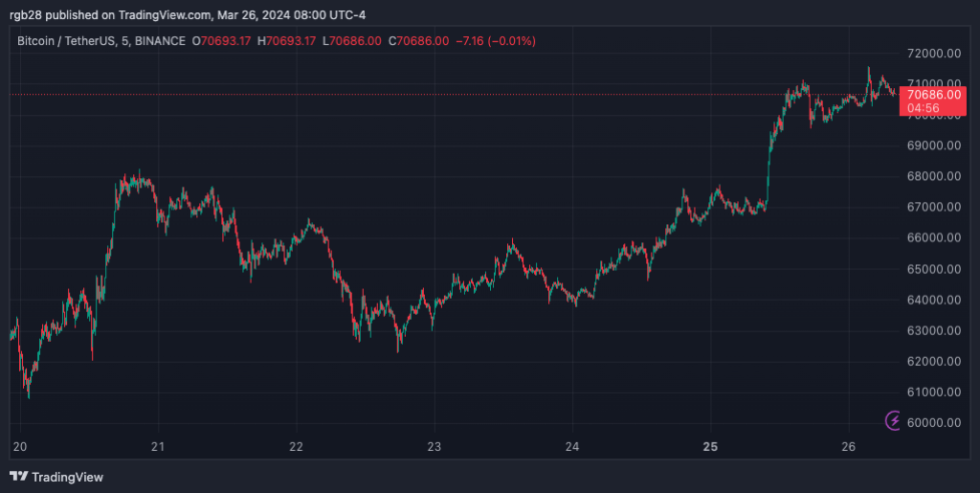The US Department of the Treasury’s Office of Foreign Assets Control (OFAC) announced a new round of sanctions on crypto-related companies linked to Russia. The measure is part of the US government’s efforts to combat OFAC-designated entities from evading sanctions through virtual asset services.
OFAC Designates Russia-Linked Crypto Companies
The US treasury has recently designated thirteen entities and two individuals for allegedly facilitating transactions and offering crypto services to help “evade sanctions.”
The new designations target companies servicing Russia’s core financial infrastructure for operating in the “financial services and technology sectors of the Russian Federation economy.”
The list includes Russia-based and Russia-linked individuals developing and offering virtual asset services that “enable the evasion of US sanctions by OFAC-designated entities.”
The move bans all transactions and interactions between the designated entities and US individuals. It is part of OFAC and the G7’s efforts against the evasion of sanctions and export control measures from the designated parties.
Brian E. Nelson, Under Secretary of the Treasury for Terrorism and Financial Intelligence, explained:
Russia is increasingly turning to alternative payment mechanisms to circumvent U.S. sanctions and continue to fund its war against Ukraine. As the Kremlin seeks to leverage entities in the financial technology space, Treasury will continue to expose and disrupt the companies that seek to help sanctioned Russian financial institutions reconnect to the global financial system.
On-Chain Data Unveils Bitpapa And Netex24 Assistance In Sanctions Evasion
Blockchain research firm Chainalysis released a report analyzing two of the newly OFAC-designated entities: Netex24, a Moscow-based fintech company that operates as a crypto exchange, and Bitpapa, a peer-to-peer (P2P) exchange that facilitates payments for Russian crypto businesses on OFAC’s list.
According to the report, both companies have facilitated significant transactions to sanction entities over the past two years.
The company identified “clusters associated with both services using on-chain data.” The report highlights that exchanges without Know Your Customer (KYC) controls and darknet markets make up a significant portion of the companies’ transaction history.
These transactions include Russian-language sites offering “on and off ramping with sanctioned Russian banks.” The two companies have registered massive fund outflows sent for seemingly illegal purposes.

According to Chainalysis, Bitpapa registered 52% of outflows to Sanctioned entities and 32.6% to darknet markets from October 2019 until March 2024. Meanwhile, Netex24 exhibits 46.7% of outflows to darknet markets and 23.4% to sanctioned entities from October 2016 until March 2024.
The cumulative value sent from these companies to sanctioned parties increased since 2022, when Russia’s war in Ukraine started. As the chart above shows, the darknet market transactions increased alongside those of sanctioned entities during this timeframe, rising above $75 million since the second half of 2023.
Per the report, both entities transferred millions of dollars worth of crypto to Hydra Market and crypto exchange Garantex. Additionally, the companies facilitated transactions for several pro-Russia militia and propaganda groups, including OFAC-designated MOO Veche.
The US government has intensified its efforts against entities bypassing sanctions through crypto-related services. A round of sanctions was imposed in January on the platforms involved in the facilitation of crypto transactions linked to the terrorist group Hamas as part of the ongoing efforts for
Moreover, The US has severely targeted crypto mixers for the misuse of these privacy tools by criminal actors, including bans on Tornado Cash and its founder, which has raised concerns in the crypto community.









